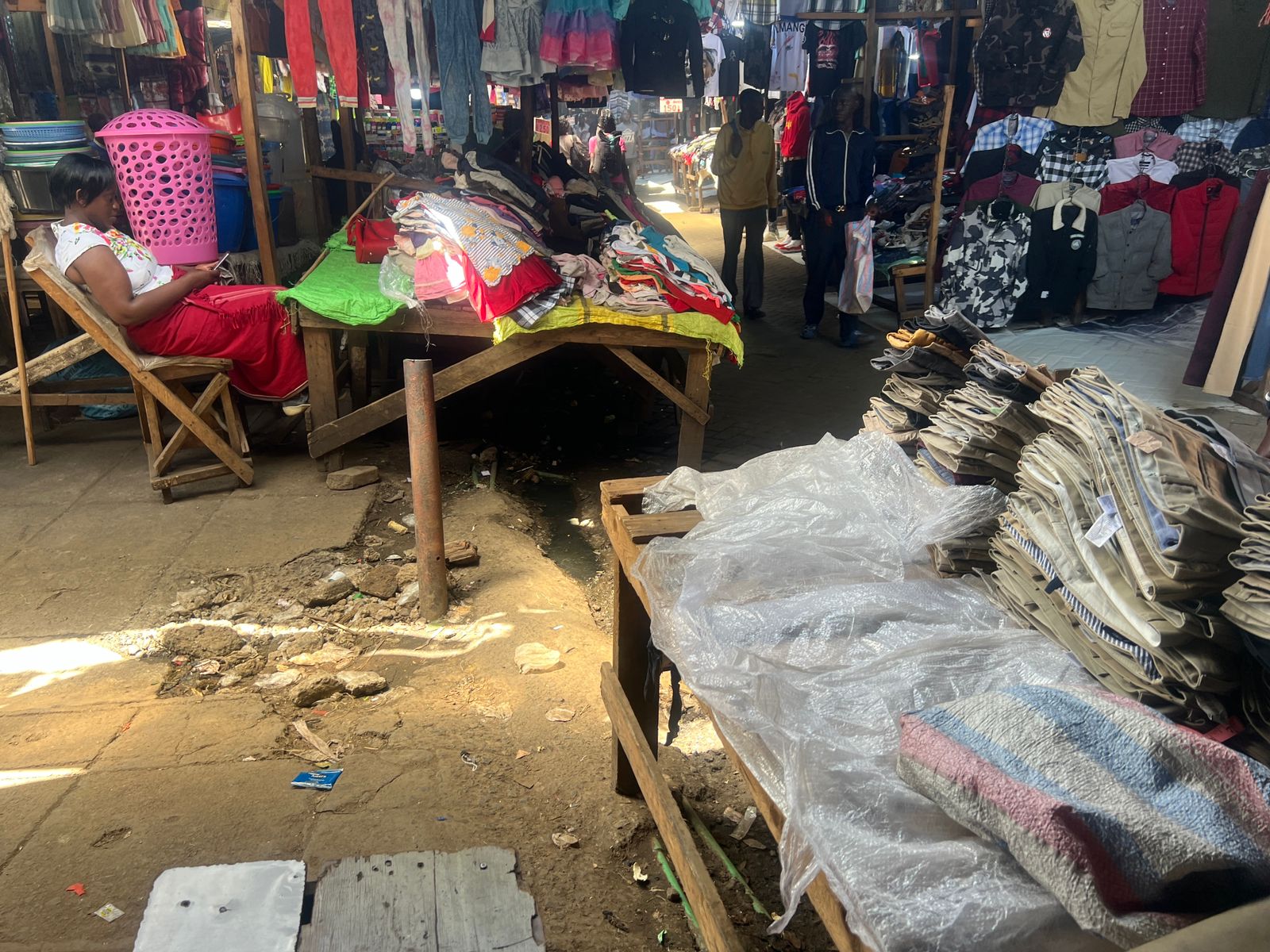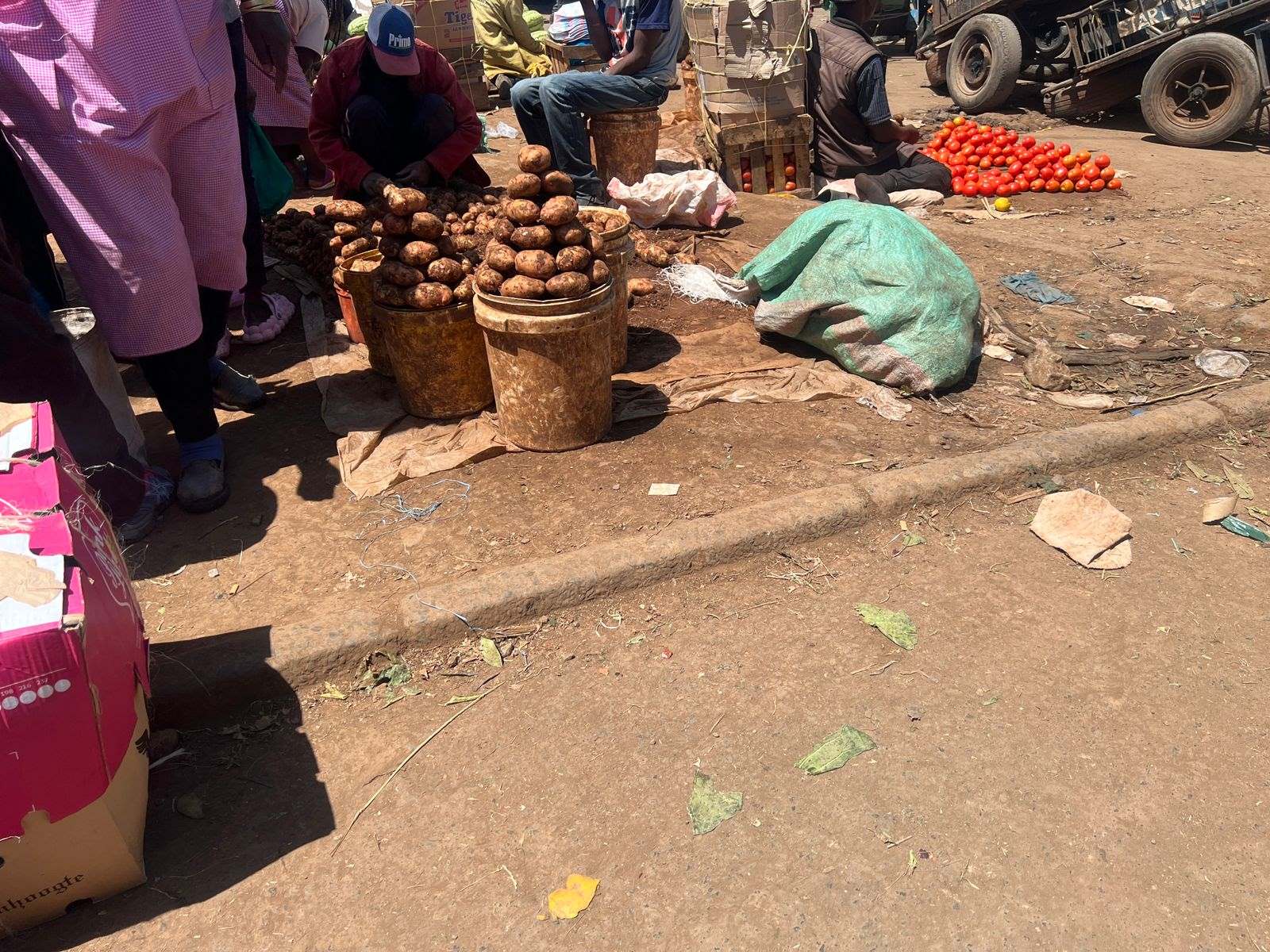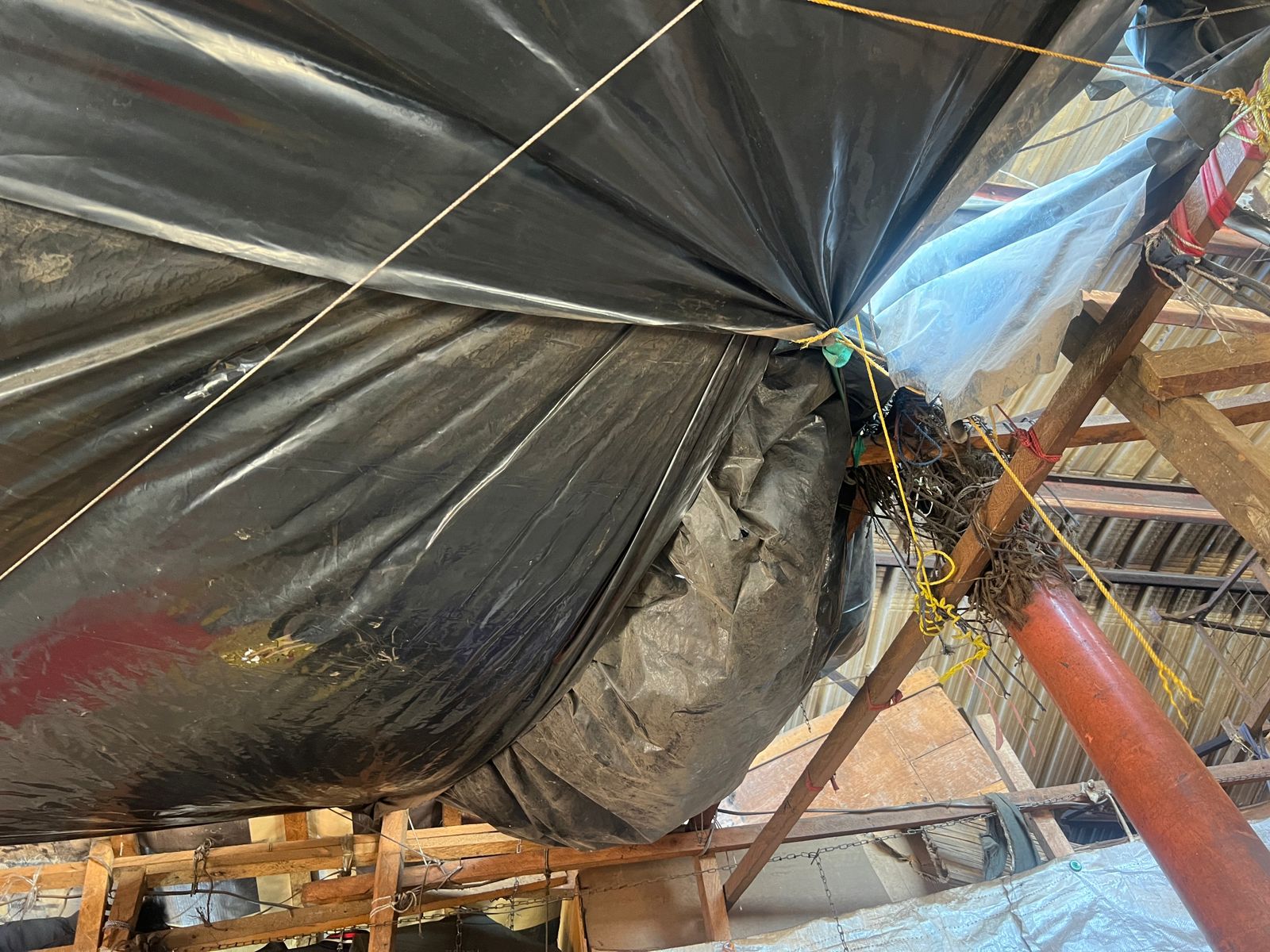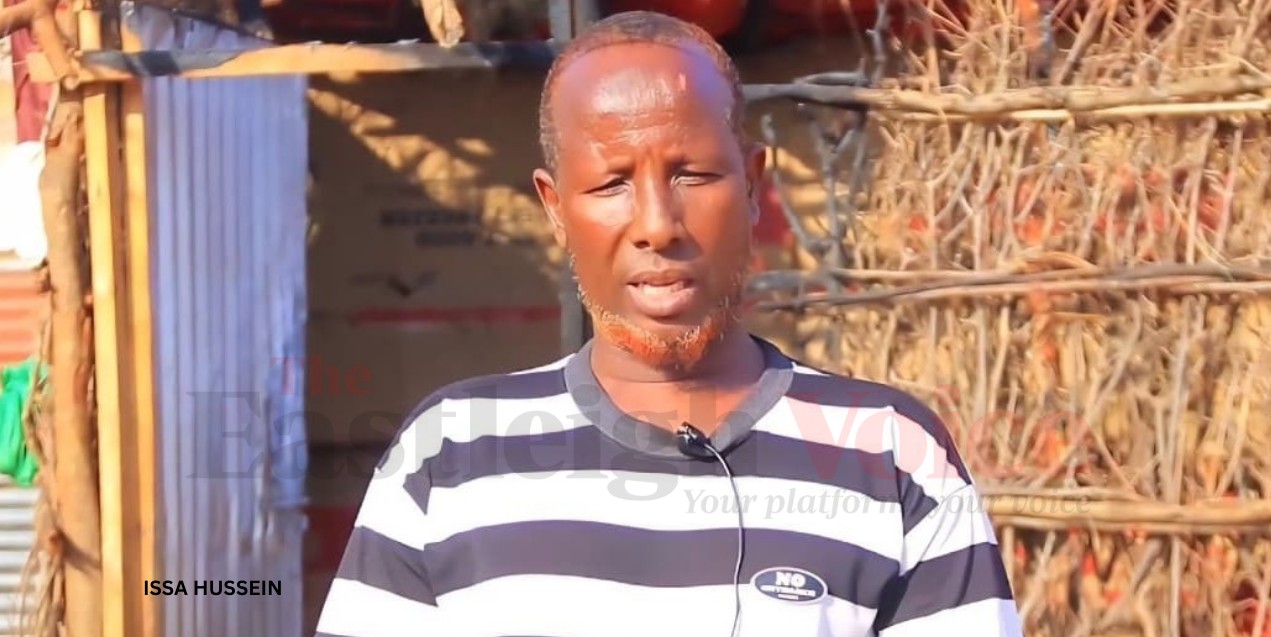How heavy rains brought hardship for market traders in Nairobi

In all these markets, a common thread emerged: dwindling customer numbers amid persistent rains led to spoiled produce and financial losses for traders.
In the heart of Nairobi with a population of 5.3 million people, lays, Gikomba, Muthurwa, and Marikiti markets which stand as grounds of trade serving the county and beyond its borders.
Nairobi was among the worst affected with more than 180,000 people affected, leaving thousands of families displaced by the heavy rainfall.
More To Read
- Paved road brings new life to Kamukunji’s Kitui village, residents push for street lights next
- Rain, thunderstorms expected across 20 counties in latest forecast
- From humble beginnings: Sadiq Gabow carves niche as Eastleigh's sole full-time Marikiti trader
- Over 8,000 displaced due to flooding in Ethiopia's South Omo region
- Tragedy in Mathare: Five killed, several injured in devastating slum fire
- Rains to persist across Kenya with isolated heavy downpours - Weatherman
As heavy rains pounded the city last month, these vibrant hubs of trade were greatly affected.
Wakulima Market, affectionately known as Marikiti, sits along Haile Selassie Avenue, adjacent to Muthurwa Matatu Terminus, and close to the Machakos Country Bus Station, a central location pulsating with commerce.
As Nairobi's primary wholesale hub for fresh produce, Marikiti receives shipments from most parts of the country and neighbouring countries, buzzing with activity day and night.
The market thrives on a bustling network of mikokoteni (hand carts), as many stallholders rely on these carts to transport substantial volumes of produce, manoeuvring through Nairobi's streets to deliver orders to various corners of the city.
However, when the rains came, it was not business as usual because the city was being hit during prime business hours.
"Normally, traders like me who supply onions to other vendors usually start our day at 5 am but some days due to the heavy rains we have delays. Some vendors even failed to show up because of the rains and some produce goes bad and we even end up selling less," says Peter Muchiri, onion supplier in Marikiti.
Outside the Marikiti market, numerous vendors show their items to walkers and complain that business was slow during last month's wet season.
"With few people coming to make purchases, some of our fresh farm produce spoiled, leaving us to tally our losses. My potatoes which I sell in buckets got few customers as only a small number of them dared to brave the rains," said Samson Atieno, a potato seller.
 Potato traders outside Marikiti Market along Haile Selassie Avenue, Nairobi on May 10, 2024. Photo: Maureen Kinyanjui
Potato traders outside Marikiti Market along Haile Selassie Avenue, Nairobi on May 10, 2024. Photo: Maureen Kinyanjui
Traders from Muthurwa and Gikomba had nothing to smile about as they also lamented how the rains affected their businesses.
Gikomba Market, East Africa's largest open-air market, faced similar trials.
Samuel Ndung'u, a vendor specialising in vegetables and second-hand clothes for men, recounts how business was bad during the rainy period.
"The rains affected us and the customers started reducing especially in the evening hours.
Most people whom we target are in a rush to board the matatus before it starts raining. Some days I ended up not selling anything," he said.
In the food sector, Ndung'u said that the traders ended up buying from food vendors to prevent the food from going bad.
"The fast-selling products such as vegetables and fruits got affected by the rains as our customers were not regular. But for mama kiosk who cooks food we opted to buy from them but not daily as also we could not afford it,” he told the Eastleigh Voice.
Grace Wangari, a second-hand (mitumba) clothes seller, was also in agreement that the rains affected many traders especially those whose structures didn't have strong roofs to prevent the rains from damaging their goods.
"Even where we store our clothes, the rains were so heavy that some of our stock was soaked in water. And to dry them off took time and this meant that you had to close business for some hours which resulted in losses," she said.
Wangari said they are hoping that they don't witness another situation where they have to encounter losses.
"Now we have our children reporting back to school and we don't have enough money to cater to all their needs because we didn't make as much money as we wanted due to the heavy rains,” she added.
Muthurwa Market, established in 2007 to ease traffic congestion, also bore the negative impact of the rains.
Joseph Ntutu, a shoe vendor, described the struggle of keeping merchandise dry as leaky stall roofs let water seep in, damaging goods.
"The rains affected us because they were heavy and the roofs were not able to block the rains. The shoes got rained on and it takes time to dry making us go at a loss," he said.
 A roof made from hard nylon material used by some traders for shelter inside Muthurwa market, Nairobi on May 10, 2024. Photo: Maureen Kinyanjui
A roof made from hard nylon material used by some traders for shelter inside Muthurwa market, Nairobi on May 10, 2024. Photo: Maureen Kinyanjui
Esther Nyambura, a mobile accessories vendor, narrated a similar experience of a decrease in customers as commuters rushed to escape the heavy rains.
"The rains not only disrupted our work but also our incomes. With fewer customers and damaged merchandise, we struggled to make ends meet and provide for our families as I could barely make Sh3000 a day," she said.
The floods in the markets also raised health concerns with the open drainage systems turned into a breeding ground for pests, increasing the risk of water-borne diseases.
In all these markets, a common thread emerged: dwindling customer numbers amid persistent rains led to spoiled produce and financial losses for traders.
Chief Officer for Trade, Markets, and Cooperatives Godfrey Akumali told the Eastleigh Voice that the market sector experienced transportation challenges during the rains.
He explained that major markets like Marikiti, where supply to the city comes in from other counties experienced delays.
"Supplies from outside were delayed especially products coming from areas like Narok because at times the roads were affected. This meant that supplies could not get to the city, hence businesses went down," Akumali added.
 Nairobi county Chief officer for Trade, Markets and Cooperatives Godfrey Akumali during an interview with the Eastleigh Voice at Nyayo House, Nairobi on May 14, 2024. Photo: Maureen Kinyanjui
Nairobi county Chief officer for Trade, Markets and Cooperatives Godfrey Akumali during an interview with the Eastleigh Voice at Nyayo House, Nairobi on May 14, 2024. Photo: Maureen Kinyanjui
The other challenge was open-air market traders who are mostly found in most markets could not operate as usual due to the weather conditions.
"Majority of our traders work in open spaces then this means that people cannot operate normally because they don't have permanent structures with roofs," Akumali said.
Coming to closed markets, some experience flooding due to poor drainage.
“Some of the affected markets included Quarry Road (Gikomba), Burma Market, Jogoo Road, and Kahawa West which were heavily affected by floods due to clogged drainages," said the chief officer.
Despite his office working in collaboration with the mobility department to clear the drainages and the environment sector to collect garbage, Akumali said traders also had a responsibility to keep the market clean.
With all the challenges, the outcome reflected in the revenue collection which recorded a decrease.
"The revenue collection was affected and we had a slight drop where in a day we used to collect even more than one million but when the floods came, we even collected Sh700,000 daily," Akumali added.
However, with the rains subsiding, hope has been revived among the traders of these three markets as they anticipate a return to normalcy, eager to recover from the hardships brought by the rainy season.
Top Stories Today














































